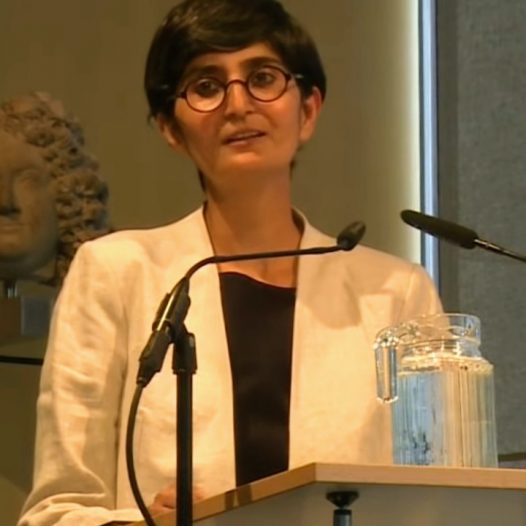Die Politikwissenschaftlerin Nikita Dhawan spricht in ihrem Vortrag „What Difference does Difference make“ unter anderem über Kolonialismus, und wie dieser Deutschland beeinflusste. Deutschland profitiert vom Kolonialismus. Hannah Arendt spricht über das Verlieren der deutschen Kolonien und den daraus folgenden Faschismus. Sexismus ist nicht immer gleich – nicht alle erfahren das Gleiche.
Es gibt verschiedene Arten von Hate Speech: Warum werde ich diskriminiert? Frau? Schwarz? Queer? Nur weil Merkel Frau ist, heißt das nicht, dass wir an einem besseren Punkt sind – siehe Trump.
Wenn eine Organisation als Agenda diversity hat, ist das ein Mantel, unter dem man sich versteckt, um Diskriminierungsvorwürfe zu verhindern.
Ansatz für Kritik: auch wenn man etwas sinnvoll findet, kann man Schwächen suchen und kritisieren wenn man Aushängeschild für Diversität eingeladen wird, dann sollte man trotzdem die Chance nutzen, wenn man darüber reden kann.
This talk engages with the formative concepts of diversity and intersectionality, inquiring how far they are employed as tools for achieving gender and racialized justice that open up spaces for marginalized constituencies, including racial and religious minorities, colonial subjects, queers, and women, and how they unwittingly reify the hegemony of an entitled majority by failing to realize their emancipatory possibilities.
Nikita Dhawan is a Professor of Political Science and Gender Studies at the University of Gießen, Germany. One of the enduring focal points of her work has been to explore the historical, economic, socio-political, and cultural entanglements between Europe and the postcolonial world. The aim is to understand fundamental ethical and epistemological questions of political and social inequality, intersectionality and diversity, (women’s) human rights, gender violence, religion and secularism, democracy, cosmopolitanism, transnational (gender) justice, migration, and globalization. Furthermore, her recent research also focuses on the relation between states, civil society, and subaltern groups with regard to questions of citizenship, political agency, and social vulnerability. Her publications include: Impossible Speech: On the Politics of Silence and Violence (2007); Decolonizing Enlightenment: Transnational Justice, Human Rights and Democracy in a Postcolonial World (ed., 2014); Global Justice and Desire: Queering Economy (co-ed., 2015); Negotiating Normativity: Postcolonial Appropriations, Contestations and Transformations (co-ed., 2016); Difference that makes no Difference: The Non-Performativity of Intersectionality and Diversity (ed., 2017) and Reimagining the State: Theoretical Challenges and Transformative Possibilities (co-ed., 2019). She received the Käthe Leichter Award in 2017 for outstanding achievements in the pursuit of women’s and gender studies and in support of the women’s movement and the achievement of gender equality.






